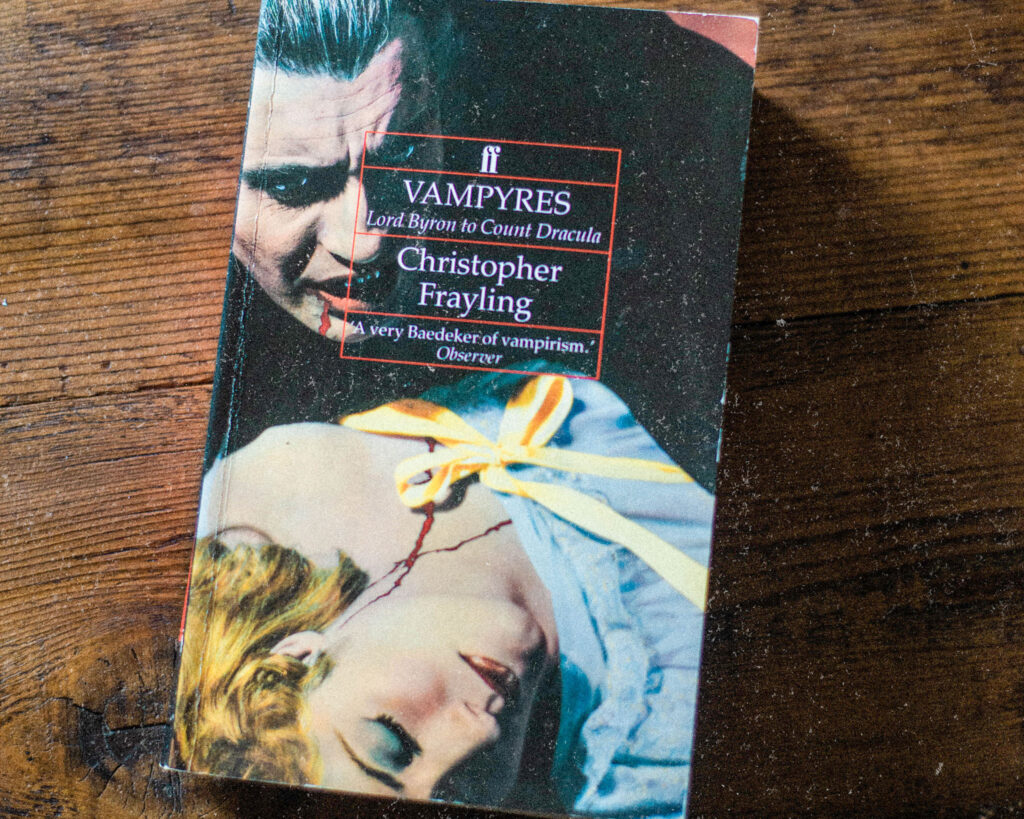When I worked as an employee, the prospect of an annual performance review was enough to make me break out in hives.
The lofty goals of the exercise, expressed in corporate mumbo-jumbo such as “maximising potential”, “aligning targets” and “boosting performance”, seemed insincere at best; at worst, the real agenda seemed more related to assigning blame, evading responsibility, and denying bonuses, raises, promotions, and more favourable contracts.
Traditional end of year reviews, for most creatives, are a nonsense anyway.
We do whatever it is we do because we love it.
We’re self-directed, with huge intrinsic motivation to do our absolute best work, enraptured by the process and enchanted by the outcome – irrespective of how much money, status or assorted other incentives are dangled in front of us.

Looking back at the year
So why on earth would I suggest that creatives (and other free spirits) conduct their own end of year review?
Maybe it’s just me, but this year’s been a tough one.
No matter whether you’re a writer, artist, illustrator, actor, dancer, singer, or something else entirely, there’s so much that’s beyond our control.
We have little to no say in how budgets are allocated, whether pitches are picked up, whether books (or artworks, or performances) sell, how generous reviewers (or audiences or viewers) are willing to be, whether editorial (or curatorial or directing) contacts move on, and so on.
But despite all this, I reckon it’s still worth sitting down with your calendar, or journal, or the collection of photos on your phone, to review how the year unfolded.
Not for the purpose of doing a traditional end of year review, though. This one will look a bit different.
The purpose of my end of year review template below is not to measure tangible things, such as how much money you made, or how many clients you signed up, or how much turnover you generated, or how many completed projects you cranked out (although it invariably will touch on all those things).
Rather (and probably maddeningly for those used to doing things the other way) it simply asks you to reflect on what went well, what didn’t, and how it made you feel.
I’ve used the following 9 questions for my own end of year review. You might also find them helpful. The idea is to evaluate what’s worth keeping and what’s worth ditching. So, pour a pot of tea, dim the lights, and let’s get started.
9 magic questions to give your 2024 a glow-up

1. What were my favourite projects (and how can I get more of that good stuff)?
Be prepared for some surprises. The favourites you nominate now might not have been your favourites at the time. This self-reflection highlights the work that resonates with you, personally and professionally. It reinforces your passion for certain topics or projects, but also helps refine your niche expertise. Most of all, recognising and celebrating successful projects contributes to a positive mindset, boosting confidence and motivation for the upcoming year.
My answer: Travel writers love to accrue passport stamps, luggage tags and boarding passes. But a look at my calendar this year has revealed that the projects that I’ve loved the most have been bite-sized journeys, close to home, that haven’t demanded too much from me in terms of time and long-haul travel. One of my favourite stories of the year involved road-testing four Gold Coast spas – not just because the experiences were amazing (obviously) but because my editor gave me the latitude to be playful with the content. Here’s the story if you’re looking to plan your next spa day getaway.

2. What has drained me this year (and deserves the old heave-ho)?
During your end of year review, determining which projects turned into energy vampires forces you to relive a lot of the pain, but it’s important. Taking a magnifying glass to these black holes provides an opportunity to reassess priorities and set healthier boundaries and limits. Understanding which elements contributed to the draining nature of a project helps you figure out what to take on in future, and negotiate terms that better align with your well-being. It prompts you to think critically about alternative approaches, methods, or strategies for the future. Overall, this level of introspection fosters a more balanced, sustainable and fulfilling creative practice.
My answer: Each year, I try to tackle one big project which stretches me – physically, mentally, emotionally and (as it’s turned out) financially. It’s enormously satisfying to tell little-known stories that would otherwise be left in the ‘too hard’ basket, simply because they demand such a high level of hands-on engagement. But this year, I decided that I needed to pull back on these projects and protect my energy stores for other work.
3. What have I found tedious (and must manage differently in future)?
Singling out tedious tasks offers can serve as a foundation for streamlining processes, allowing you to focus more on the work you find fulfilling and engaging. Acknowledging tedious tasks also helps beat burnout. (Need help managing burnout? I wrote another blog post on that here.) By recognising and addressing sources of frustration or boredom, you can implement strategies to delegate, automate, or restructure those tasks.
My answer: It’s not possible to eliminate all the tedious tasks that go along with running a freelance writing business. (Yes, I’m looking at you, quarterly Business Activity Statement.) But I’m moving towards corralling and containing all the boring bits in their own little pen – and blocking out regular time in my calendar to tackle them systematically. In the past, I’ve tried to kid myself that I’m “too busy” to be bothered with the paperwork, and I’ve let things go, until I start receiving increasingly strident overdue statements. This coming year, I’m on a path to lodging on time, and healing my relationship with the Australian Taxation Office.

4. What has sparked my anger?
Anger often gets a bad rap – but it’s one of the most useful emotions. It shows us (often in non-negotiable fashion) where our needs have gone unmet, where our boundaries have been violated, or who, exactly, is being a dick. Anger also alerts us to situations that require attention, reassessment, or change. Best of all, anger provides the energy to do something about it (whatever “it” is). During your end of year review, when you cast your mind back to all the times you felt effing furious, this can yield valuable information. When channelled constructively, anger can fuel personal and societal growth.
My answer: I’ve been a member of the Media Entertainment and Arts Alliance (MEAA) since I was a cadet journalist many moons ago. For decades, they acted mainly for staff journalists and photographers – but with so few of them left, it’s been wonderful to watch the union stepping up its campaigns to improve rates and conditions for freelancers too. So, the angry bit? I’ve sat in several MEAA Zoom meetings this year, and learned more about stagnant pay rates, unreasonable terms and conditions, and late payments. To be clear, I already knew about this stuff, because I’ve experienced it all, but hearing so many other people discuss similar experiences really got me boiling. That, and the realisation that such tactics seem to be part of many publishers’ standard operating practices today. The MEAA needs a critical mass of freelancers to come together to force change. If you can afford to join them, please do so.
5. Who has made me (professionally) jealous?
Jealousy is also often stigmatised as a negative emotion. But, like anger, it can serve as a valuable signal. Here, the green-eyed monster says, is something you want for yourself. In that way, jealousy is a bit like a mirror, reflecting unfulfilled aspirations or unexplored potential. Give it a nod to let it know you notice it, and it will unveil a roadmap to personal (and often hidden) desires and ambitions. Dissecting the root causes of jealousy can highlight goals, skills, ambitions or experiences you yearn for in your own life.
My answer: So much jealousy, so little time. There are too many people to mention, but let’s just say I’d love to write with greater ease, travel to the Galapagos Islands, post consistently on social media, take beautiful photographs, build my blogs and not look like a drowned rat in photos taken after snorkelling. Oh, and I wish I’d taken that gorgeous bird’s eye footage flying over the beach. Time to figure out how to use the drone properly …

6. Where did I lack a sense of play (and how can I reintroduce it)?
A playful spirit brings a breath of fresh air. A few ways to do this? Writing prompts and exercises can break routine and spark imagination. Timed free writing can lead to unexpected and playful discoveries. Changing your writing environment – to the park, a coffee shop, or a hotel lobby – can stimulate a sense of adventure. Breaking away from traditional narrative structures, such as by experimenting with non-linear storytelling, can add an element of surprise. In The Luminous Solution, Charlotte Wood explains how “impersonating or embodying”, or borrowing another person’s perspective, can bring tired work back to life.
My answer: It’s easy to get bogged down by fixed format writing assignments which don’t require much in the way of originality or experimentation. I resolved during this end of year review that, in future, I’m allocating more time to work on my passion projects – those worlds which I’d love to romp around in, but they’re too amorphous to spell out in a pitch letter (and so probably won’t be commissioned right off the bat). And when it comes to editorial work, I’m planning to bring a lighter touch and take a few more risks. But more on that to come.
7. Where did I lose the magic (and how can I bring it back)?
Building more magic into your creative endeavours involves a combination of mindset, exploration and creative techniques. A few suggested entry points? Cultivate a sense of wonder and curiosity about the world around you. Find inspiration in nature. Experiment with different mediums – or even different art forms. Celebrate mistakes. Embrace the unexpected and the imperfect. Keep a journal or sketchbook by the bed to capture your dreams and ideas.
My answer: My home office isn’t always (well, ever) a happy or well-ordered space. So, I’m ditching the piles of newspapers, stacks of books and not-looked-at-since-1999 files. I’m building a space that’s more conducive to magic, starting with the pin board’s transformation into a mood board. And I’m establishing a routine designed to put me in a magical frame of mind. This might involve lighting candles, burning sage sticks, or undertaking a creative visualisation. Basically, I’m going to be reaching for anything and everything that serves as a constant reminder that this is a sacred practice. (Coming soon: How to build rituals into your writing life.)

8. Have I taken care of myself (and where can I improve on this)?
Amid the hurly-burly of daily deadlines and last-minute requests, it’s easy to let exercise and diet slide, or to stay up half the night to finish something off. But the research is clear: when you feel good physically, you’re more likely to have a clear mind, increased focus, and the ability to generate innovative ideas. Creatives often have to navigate challenges and setbacks (hello rejection slips!) so maintaining good mental health helps you bounce back from disappointments. Prioritising self-care also helps sustain a consistent and fulfilling practice over the longer term.
My answer: I’m getting better at logging off the computer at a decent hour. But now I end up staying up reading (old-fashioned books) half the night. “The elastic band of sleep deprivation can stretch only so far before it snaps,” says Matthew Walker, author of Why We Sleep. (Ironically, his book was one of the ones which kept me up.) Walker also suggests that two-thirds of adults in developed nations fail to obtain the recommended eight hours of sleep. This is one for me to work on.
9. Has the well run dry (and how can I replenish it)?
Replenishing the well is a metaphor used to describe the process of refilling creative reserves or finding inspiration. Instead of falling back on tired, stale ways of doing things, replenishing the well ensures a steady flow of fresh ideas. (Steal my 5 ways to generating saleable story ideas here.) Without replenishment, creatives can find themselves in a rut, lacking both motivation and inspiration. This state can raise the risk of writer’s block and a failure to navigate challenges that arise during the writing process.
My answer: I used to take myself on “artist dates”. I loved them, but somehow, they fell by the wayside. Arising out of The Artist’s Way by Julia Cameron, artist dates involve a once-weekly solo expedition to whatever sounds appealing at the time (art exhibition, restaurant visit, life drawing class, ocean swim, bushwalk, you name it). “Artist Dates fire up the imagination,” says Cameron. “They spark whimsy. They encourage play. Since art is about the play of ideas, they feed our creative work by replenishing our inner well of images and inspiration.” We could certainly all use some of that as the next year rolls around.
Let me know how you go with these questions and your own end of year review. Are there any you think I should add?
While you’re here, you’re welcome to download my free resource on Pitching for Publication.
(There are (only three) affiliate links in this post, so if you click through and make a purchase I may earn a small commission, at no additional cost to you. However, I don’t ever recommend anything I don’t already use and love.)

I love this Denise, lots of good takeaways,. I plan to sit under a tree and (mentally) work my way through each point l. Thank you!
You’re such a sweetheart Kerry! Thank you. BTW you might be one of those people who makes me jealous! Love your work.